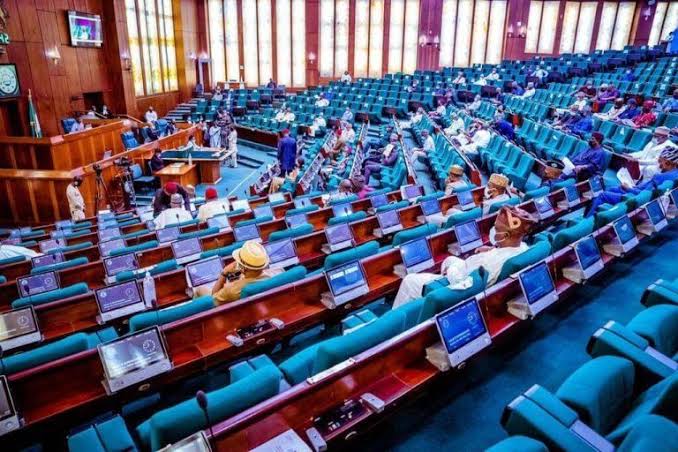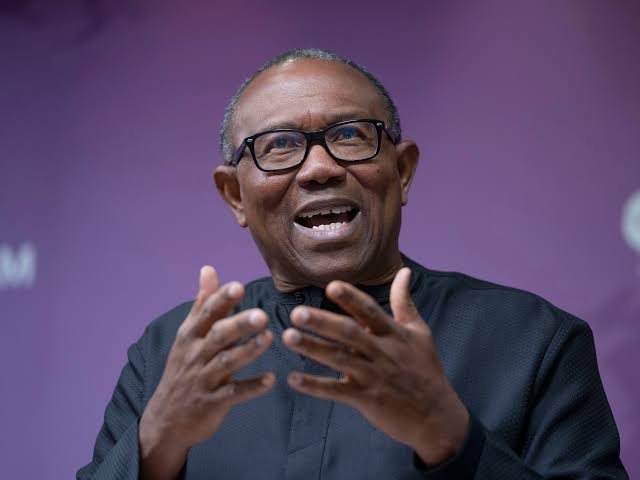Isaac Samuel
Less than two years to the 2027 general election, Nigeria’s opposition parties are once again caught in the familiar quagmire of coordination failure.
Despite growing public frustration with the ruling All Progressives Congress (APC) and mounting calls for a united opposition front, the journey toward a coalition remains mired in uncertainty. This is chiefly the adoption of a suitable political platform.
Over the past weeks, speculation reached fever pitch that the African Democratic Congress (ADC) was the favoured vessel for an emerging grand coalition comprising key figures such as former Vice President Atiku Abubakar, former Anambra state governor and Presidential candidate of the Labour Party in the 2023 election, Peter Obi, former Kaduna state governor, Nasir El-Rufai, former minister of transportation, Rotimi Amaechi, among others.
While this narrative has caused excitement among some opposition supporters, it has also exposed internal discontent and strategic mistrust among stakeholders. Indeed, the central dilemma facing the opposition is not a lack of willing actors, but the absence of consensus on which party should carry their collective ambition.
The ADC, once viewed as a neutral ground due to its relatively low baggage and modest structure has become a point of contention. Already, there are reports that the move has stirred internal division within the party as some state officials vowed not to relinquish their positions to new entrants.
Though the ADC national leadership quickly dismissed claims of division, stating that the party was united and open to progressive alliances, it was clear that internal resistance persisted particularly around fears of marginalisation and loss of influence.
On the other side, coalition insiders have walked back suggestions that any party has even been adopted. Salihu Lukman, former APC vice chair and now a central figure in the opposition realignment effort, flatly denied that the ADC had been chosen.
He called media reports to that effect “false and misleading,” insisting that coalition talks remain ongoing and inclusive of various options, including forming a new party altogether. But Lukman’s denials appear aimed at calming nerves both within existing parties and among potential coalition partners wary of being railroaded into a pre-ordained arrangement.
Observers believe that the hesitation among coalition leaders to adopt a single party may also be strategic. Announcing a preferred platform too early could fracture the alliance before it begins. Many in the coalition still recall the 2013 merger that birthed the APC, painstakingly negotiated process that took years and involved multiple parties surrendering their identities for a singular purpose: power. Before the APC merger in 2013, something similar had failed ahead of the 2011 election to wrestle power from the incumbent Goodluck Jonathan at that time.
In his June 12 Democracy Day address, President Bola Tinubu reaffirmed his commitment to multiparty democracy, saying that Nigeria’s political system would not be reduced to a one-party state under his watch.
“Democracy thrives when all citizens freely exercise their right to vote and run for office under fair conditions,” he said.
While the president’s remarks were positioned as a defence of democratic values, critics argue that the reality on ground tells a different story.
The wave of political defections to the APC, appointments perceived to reward loyalty over merit, and the shrinking space for opposition voices have led many to believe that Tinubu’s administration is tightening its grip on power, subtly, but effectively.
This contradiction lies at the heart of the opposition coalition’s current dilemma. While Tinubu publicly embraces multi party system, coalition leaders say their attempt to either adopt an existing platform or register a new one is being systematically blocked.
Recently, some opposition leaders including Rotimi Amaechi and Salihu Lukman accused the Independent National Electoral Commission (INEC) of refusal to register new parties.
Over 100 groups are said to have submitted applications to form political parties including the proposed All Democratic Alliance (ADA), backed by elements of the coalition. Yet, INEC has reportedly declined to act on most of them.
Under the Electoral Act 2022, INEC must respond to new party applications within 90 days. But coalition leaders say this timeline is routinely ignored, potentially closing off the option of starting afresh with a new platform.
Amaechi accused INEC of state capture and he alleged that the electoral body is no longer independent but working to frustrate alternative political vehicles. Indeed, if these claims are true, they raise critical questions about the health of Nigeria’s democracy and the fairness of the 2027 race.
However, President Bola Tinubu denied any attempt to impose a one-party state, promising in his June 12 Democracy Day speech that he would not tamper with Nigeria’s multiparty structure. Yet, his administration has benefited from a wave of defections, weakening the opposition while consolidating power at the federal and subnational levels.
Furthermore, one of the most delicate undercurrents in the ongoing opposition coalition talks is the rumoured offer of a vice presidential ticket to Peter Obi by the Atiku Abubakar camp.
Though neither camp has publicly confirmed this, political insiders say the offer is being quietly dangled to draw Obi into a formidable alliance that can challenge President Tinubu in 2027. Yet, Obi, still riding the momentum of his 2023 Labour Party (LP) campaign appears reluctant.
The former Anambra governor has built a distinct identity separate from the traditional political establishment, and accepting a secondary role could be seen by supporters as a betrayal of the third force movement he now symbolises.
Nonetheless, some stakeholders within both LP and PDP circles believe that the Atiku-Obi alliance remains the most viable route to unseating the APC, provided both men can overcome ego, ideological dissonance, and strategic mistrust.
For instance, Lawyer and activist Deji Adeyanju argued that former Vice President Atiku Abubakar has the strongest chance of defeating President Bola Tinubu.
In a post shared on his X handle, @adeyanjudeji, Adeyanju argued that only a Northern politician has the political strength to challenge Tinubu in the next election. He suggested that Peter Obi, the 2023 presidential candidate of the Labour Party (LP), would be best positioned as Atiku’s running mate if Atiku decides to contest again.
But analysts insist that this dilemma raises thorny questions: Will Obi return to the PDP to team up with Atiku? Or will Atiku make a historic shift by embracing the Labour Party platform?
Nevertheless, either route is fraught with complications, not least because both parties are wrestling with internal crises that have weakened cohesion and deepened factional divides. A third option adopting a neutral platform like the African Democratic Congress (ADC) or forming a brand-new party altogether has been on the table.
Beyond personality clashes and party preferences, one major roadblock to opposition unity is the deep-seated distrust among elite political actors. Each major player be it Atiku, Obi, El-Rufai, or even fringe party leaders wants to maintain influence, relevance, and control over campaign machinery.
The legacy of failed alliances, such as the collapsed Third Force movements in the past, continues to haunt current efforts.
Stakeholders remember how hurried coalitions have fallen apart under the weight of ego and ambition, particularly when power-sharing agreements are not backed by firm legal and structural guarantees.
Without a central command structure, shared manifesto, or transparent negotiation framework, talks often collapse into mutual suspicion and tactical maneuvering.
Complicating matters further is the lack of a dominant, nationwide opposition party that can serve as a credible platform. While the PDP is still the largest opposition party by size, it has been weakened by internal wrangling, court cases, and defections.
The Labour Party, though energised by Obi’s 2023 run, still lacks a robust nationwide grassroots structure and is also dealing with factional infighting. Smaller parties like the ADC or SDP are open to coalition talks but lack the reach, resources, or legitimacy needed to unify powerful rivals.
Speaking on the matter, Public affairs analyst, Dominic Alancha cautioned that it would be premature and politically unwise for any opposition coalition to project a northern presidential candidate ahead of the 2027 general election.
He stressed that the mood of the nation is not favourable to a return of power to the North, noting that even within the ruling APC, such sentiments shaped the eventual emergence of a Southern candidate in 2023..
Alancha was particularly critical of any move to reintroduce Atiku Abubakar as a potential candidate, stating that Nigerians had already passed their verdict on him by rejecting him at the polls in both 2019 and 2023.
He argued that Atiku must accept the political reality that the electorate is not inclined to support his candidacy again.
While acknowledging the presence of other northern figures like Rabiu Kwankwaso, Alancha noted that the coalition has not clearly defined its structure or lineup, with Atiku appearing to be the only familiar face being floated, an approach he warned would not resonate with Nigerians.
He lamented the current lack of cohesion and direction among the opposition, contrasting it with the virile resistance that defined the APC’s pre-2015 rise to power.
According to him, the coalition must produce a candidate with broad-based appeal and put national interest ahead of personal ambitions, or risk repeating the same mistakes that led to previous defeats.
Indeed, the stakes in 2027 are high, but the window for coordinated opposition action is closing fast. With primaries likely to begin by mid-2026, any delay in finalising a coalition platform could leave potential challengers disorganised and ineffective.
In a nation yearning for political alternatives, the inability to rally around a unified front may prove the biggest gift to the incumbent party in the 2027 election.





